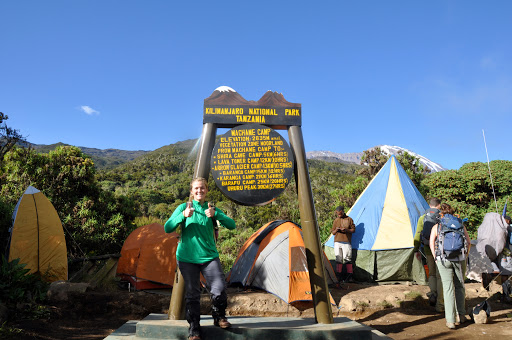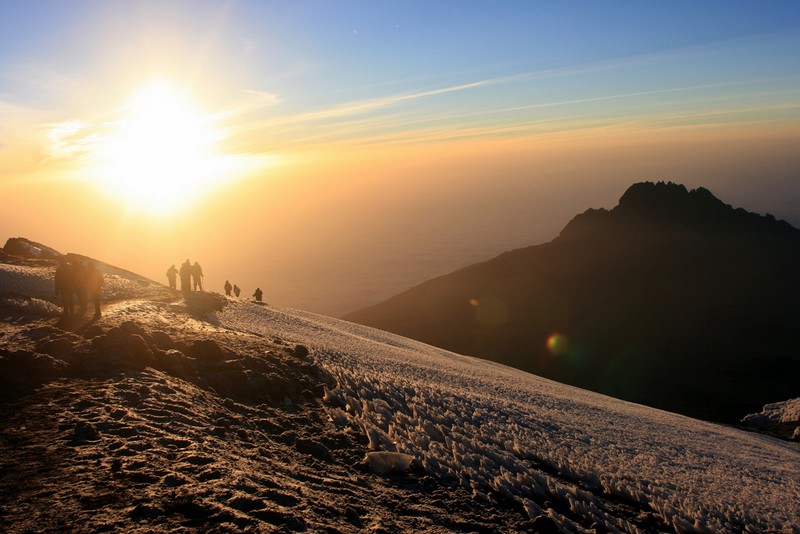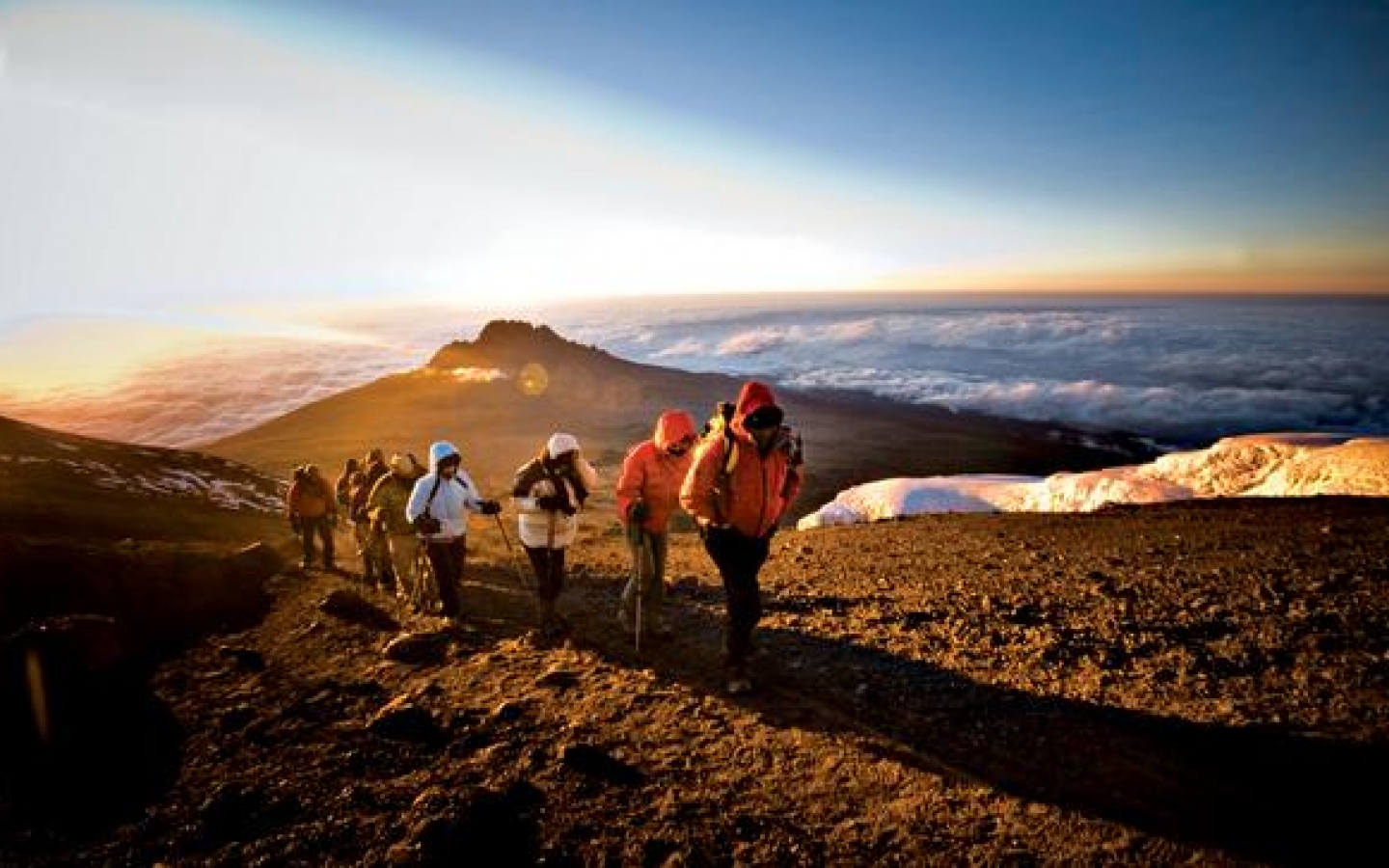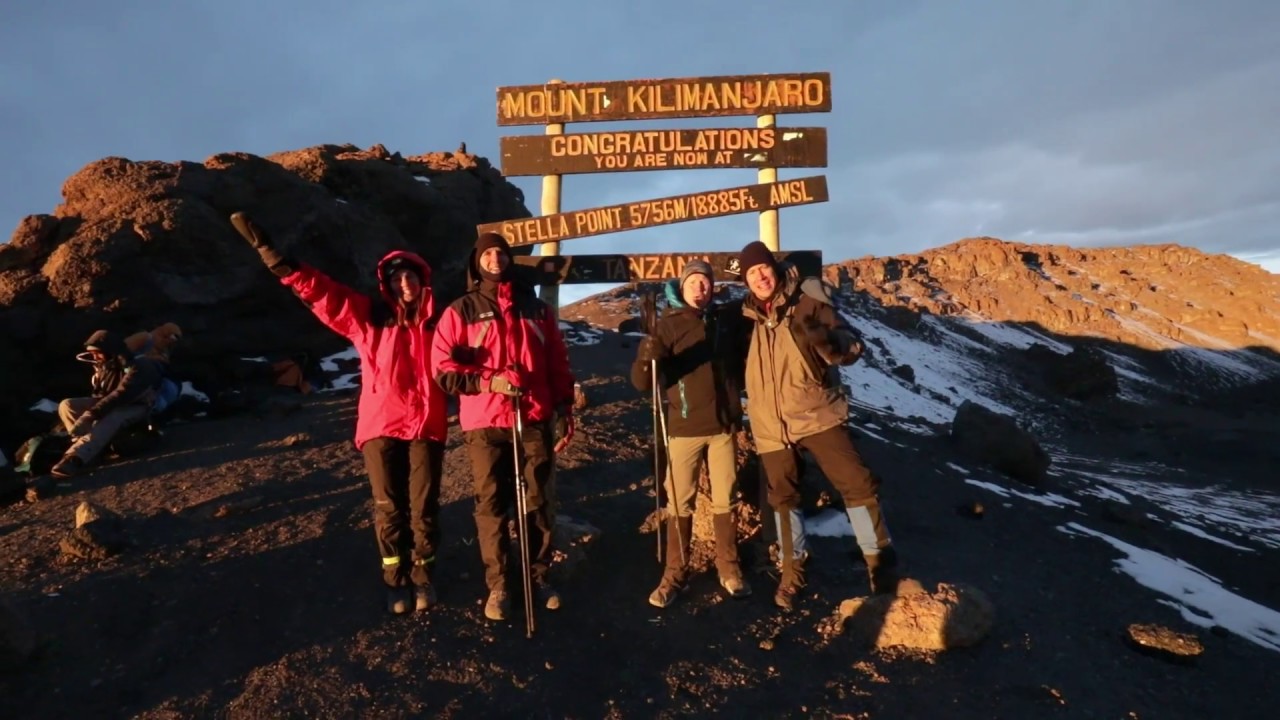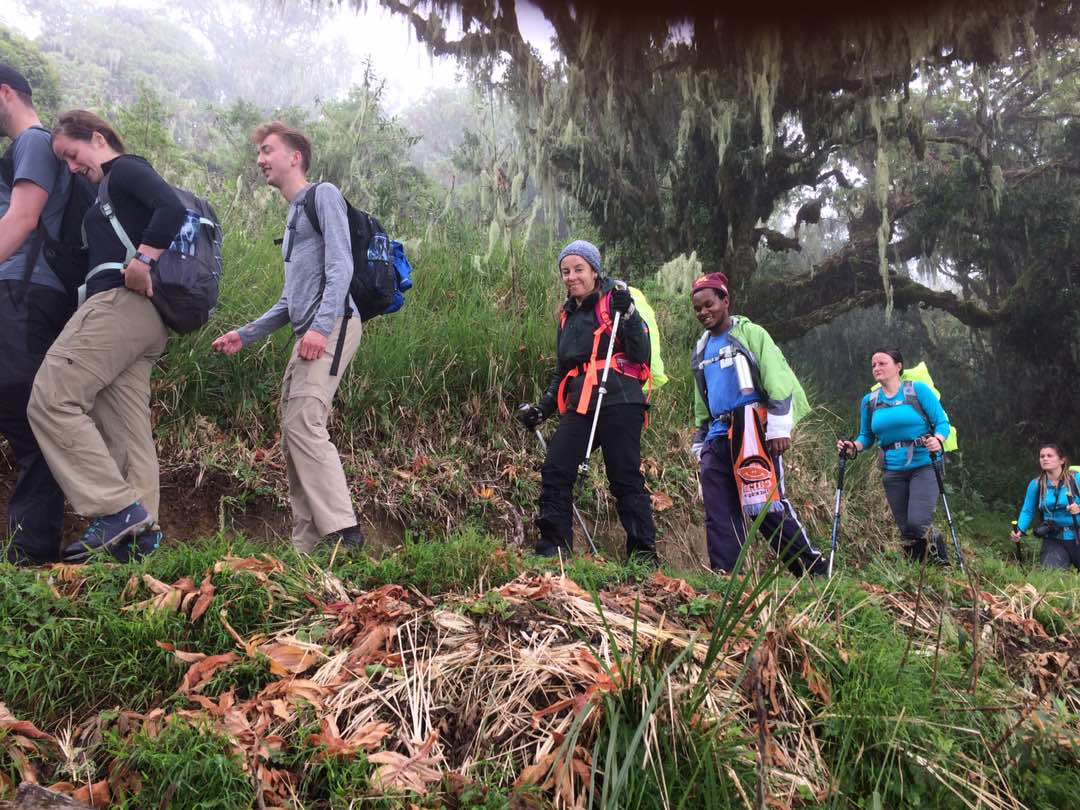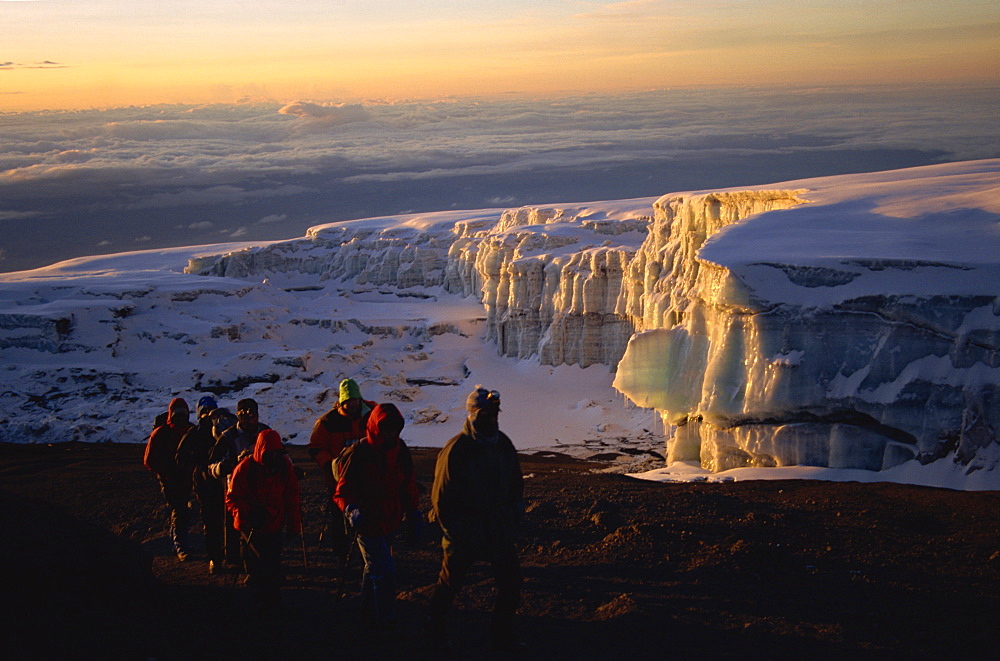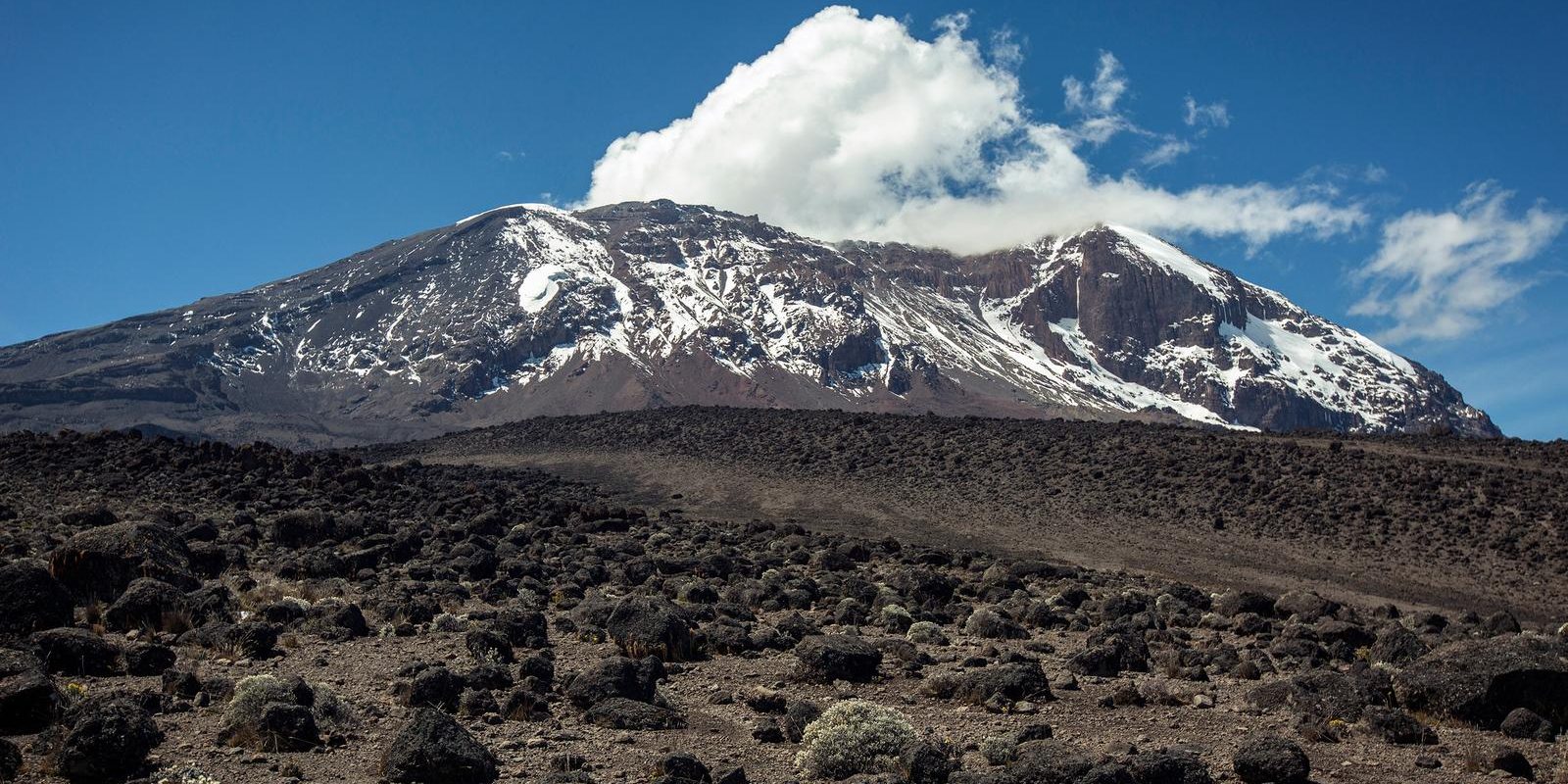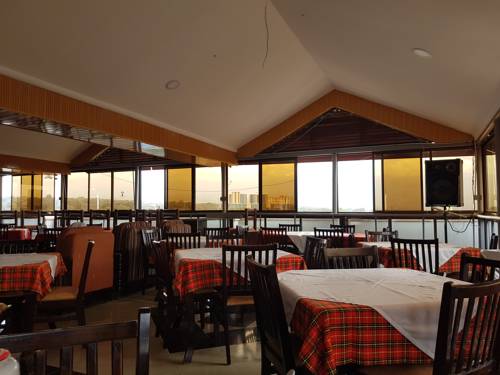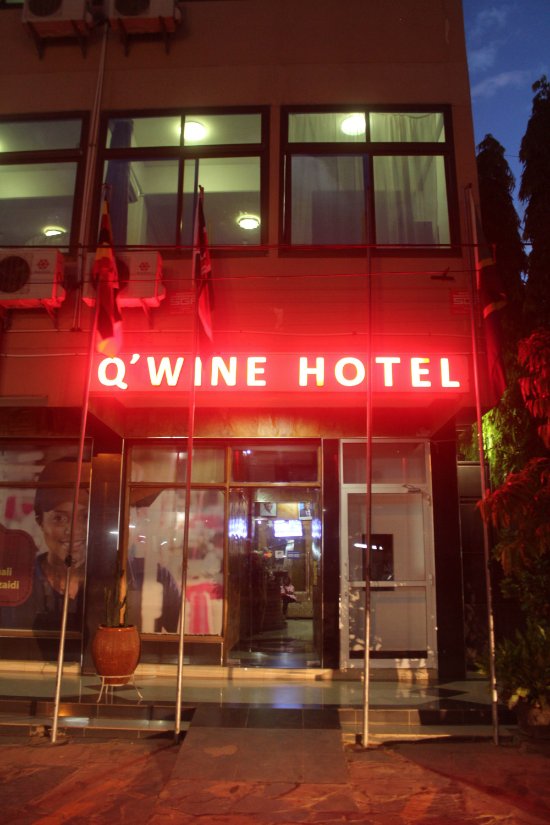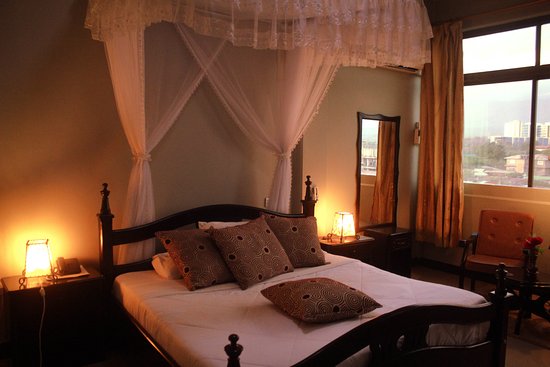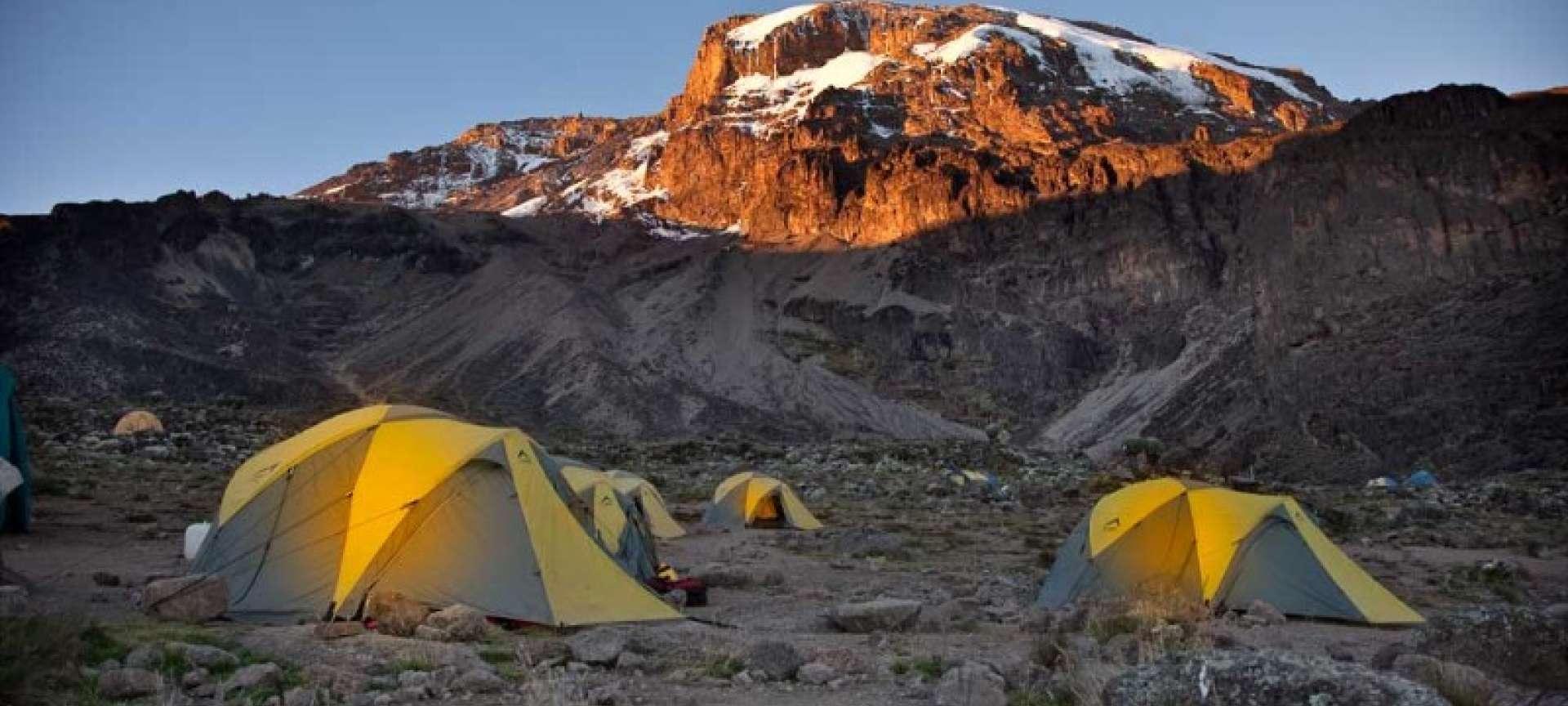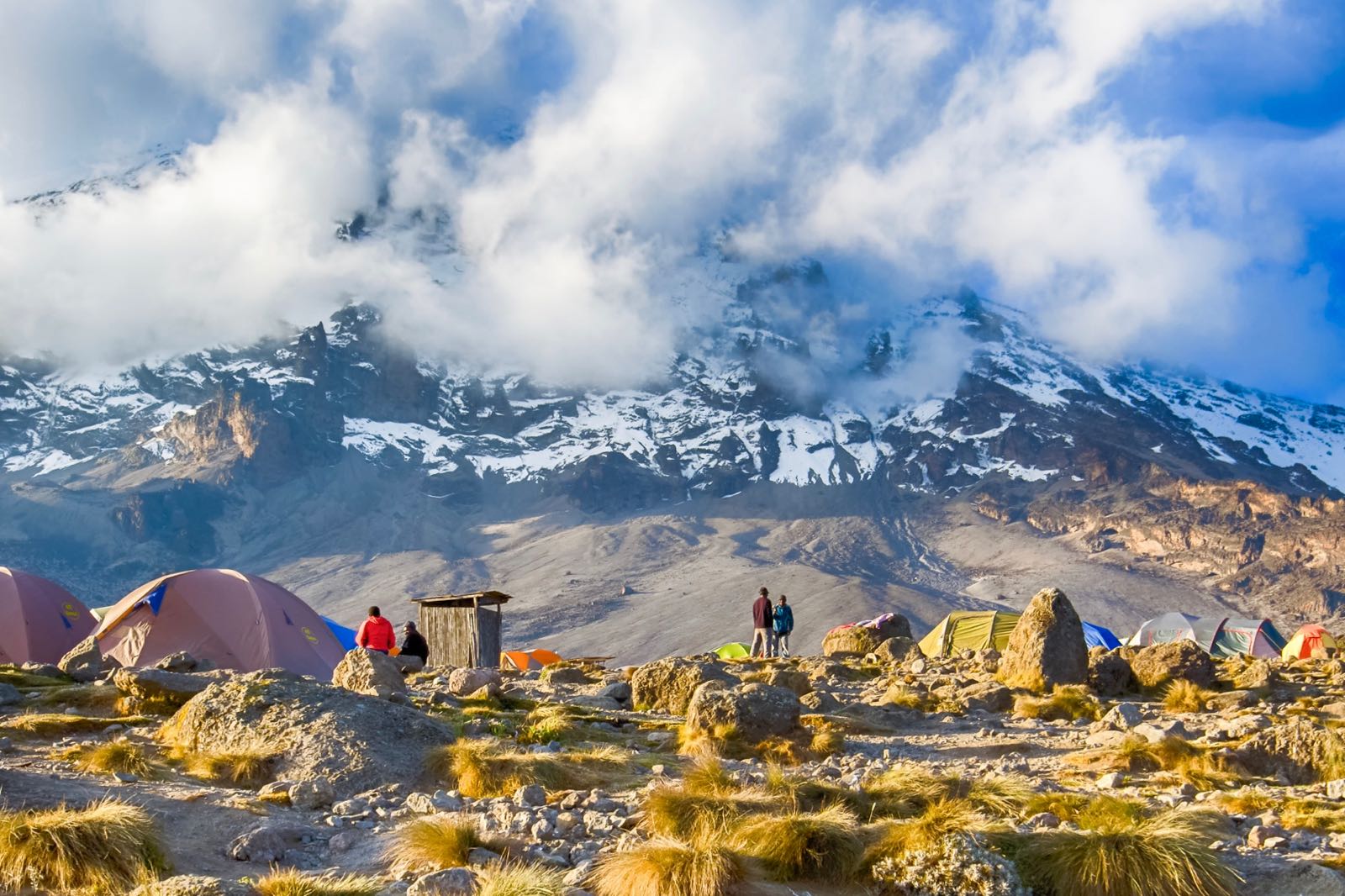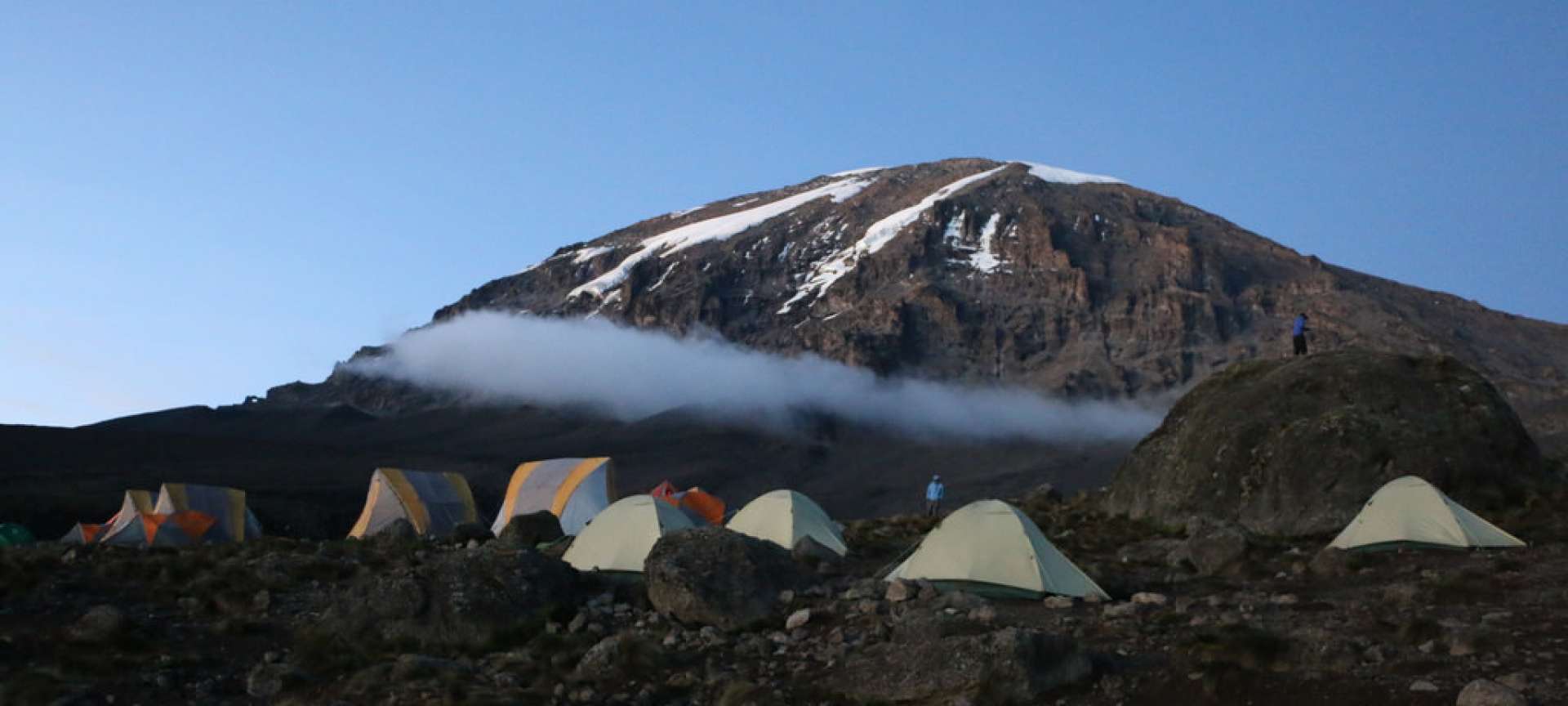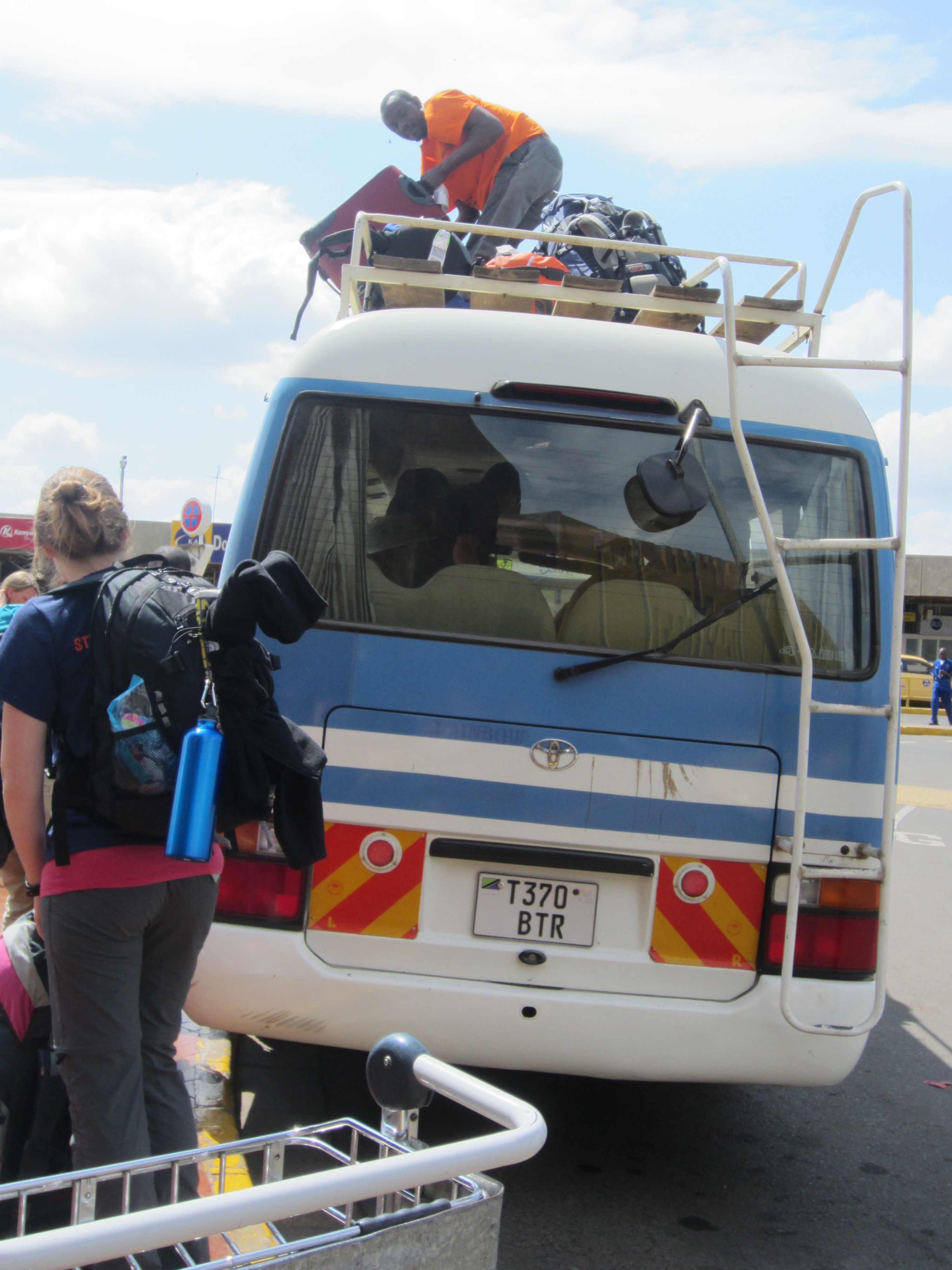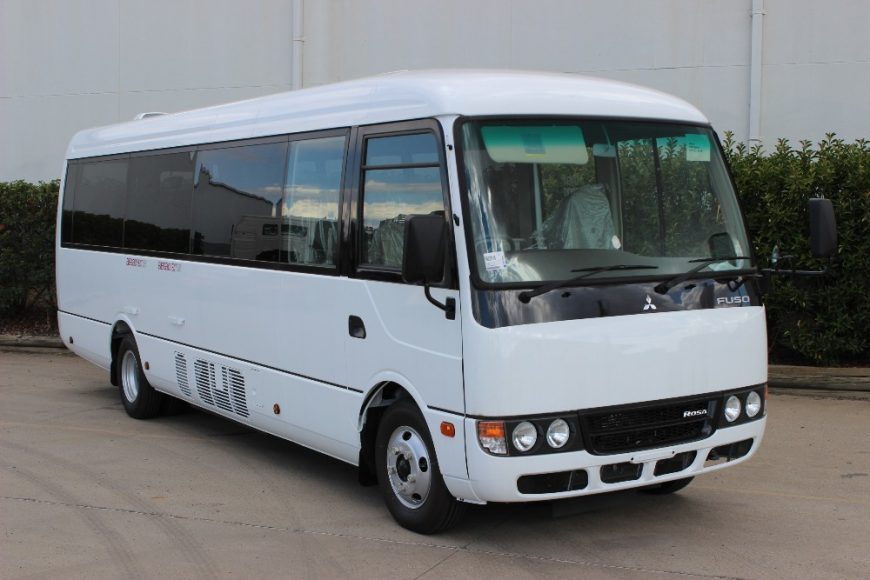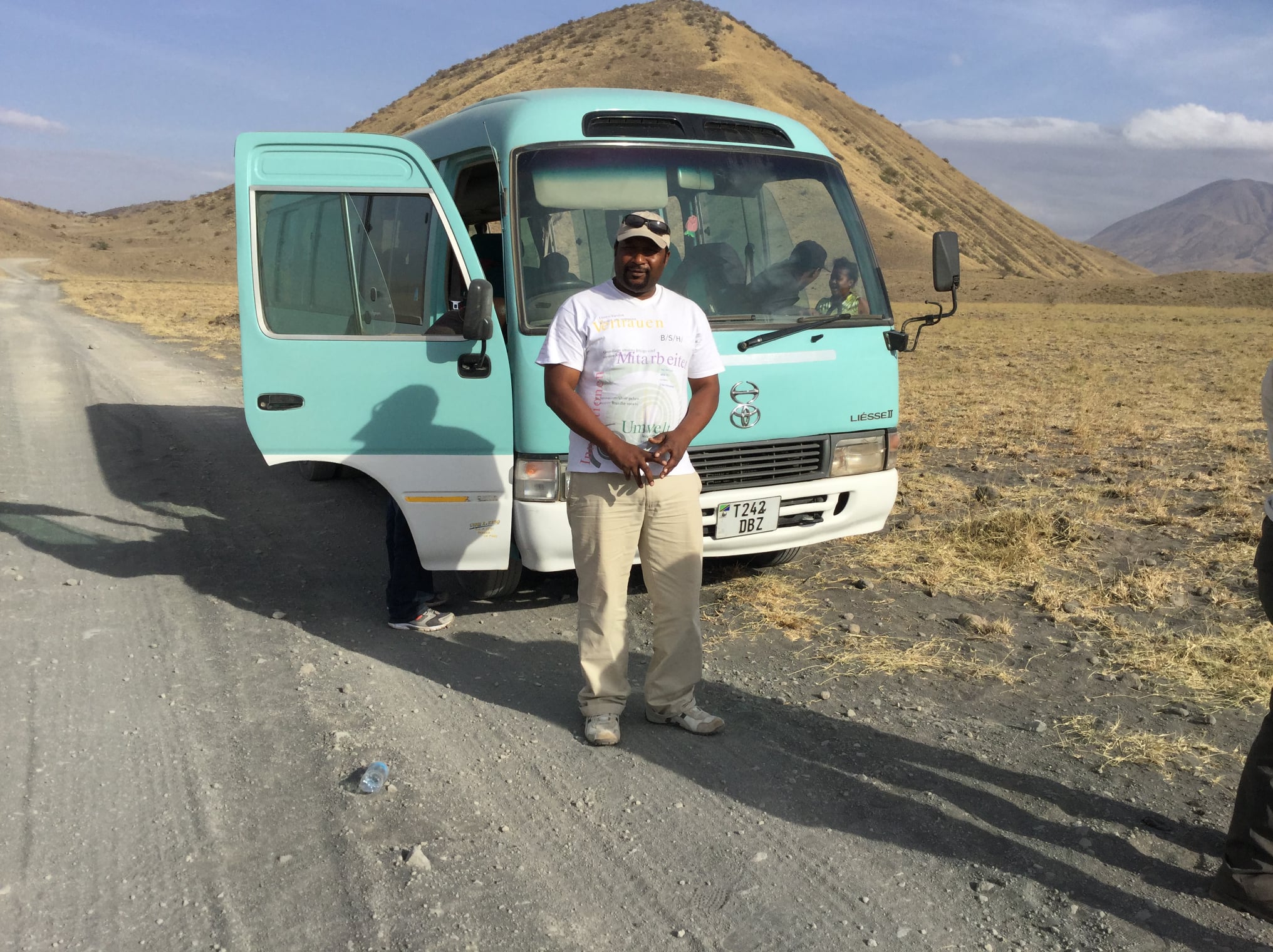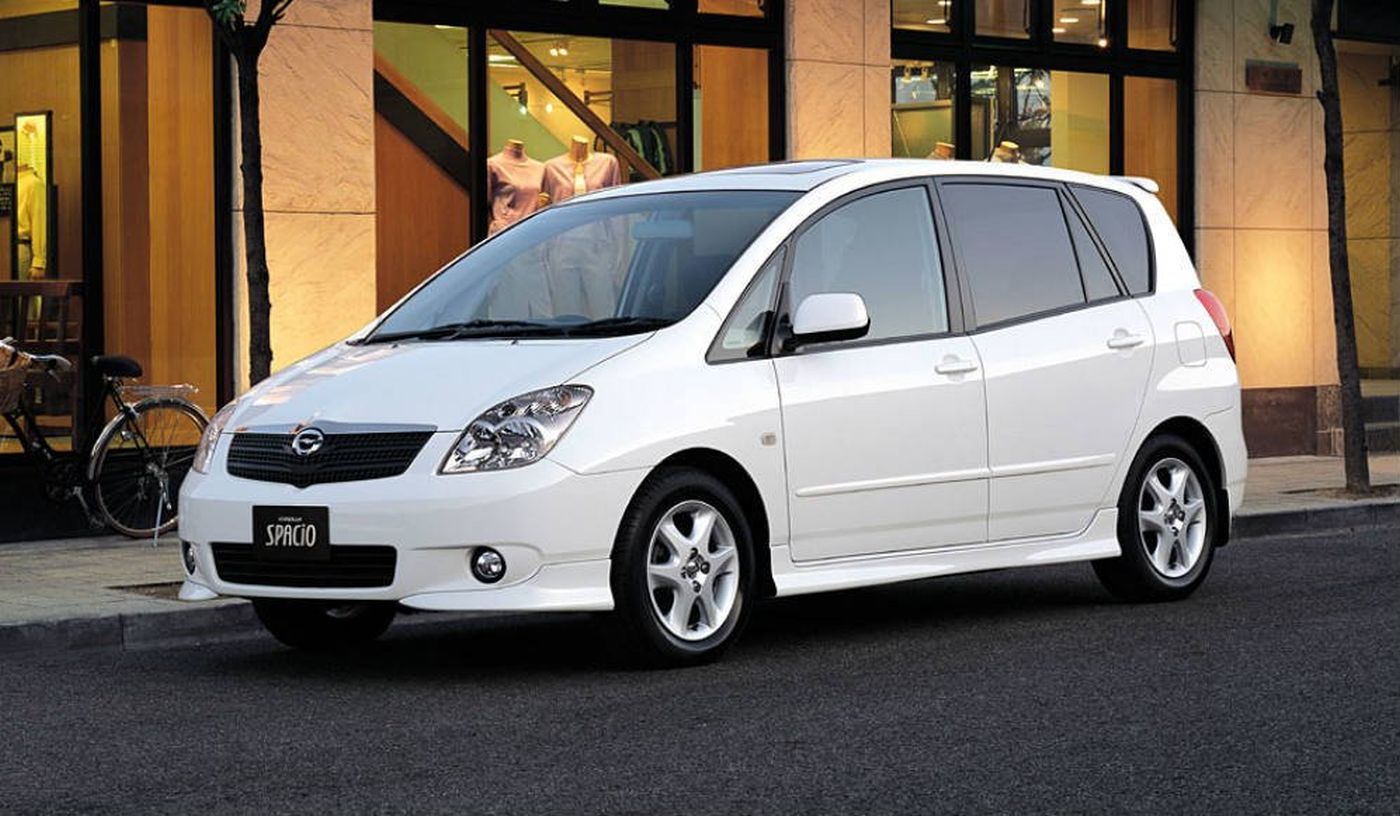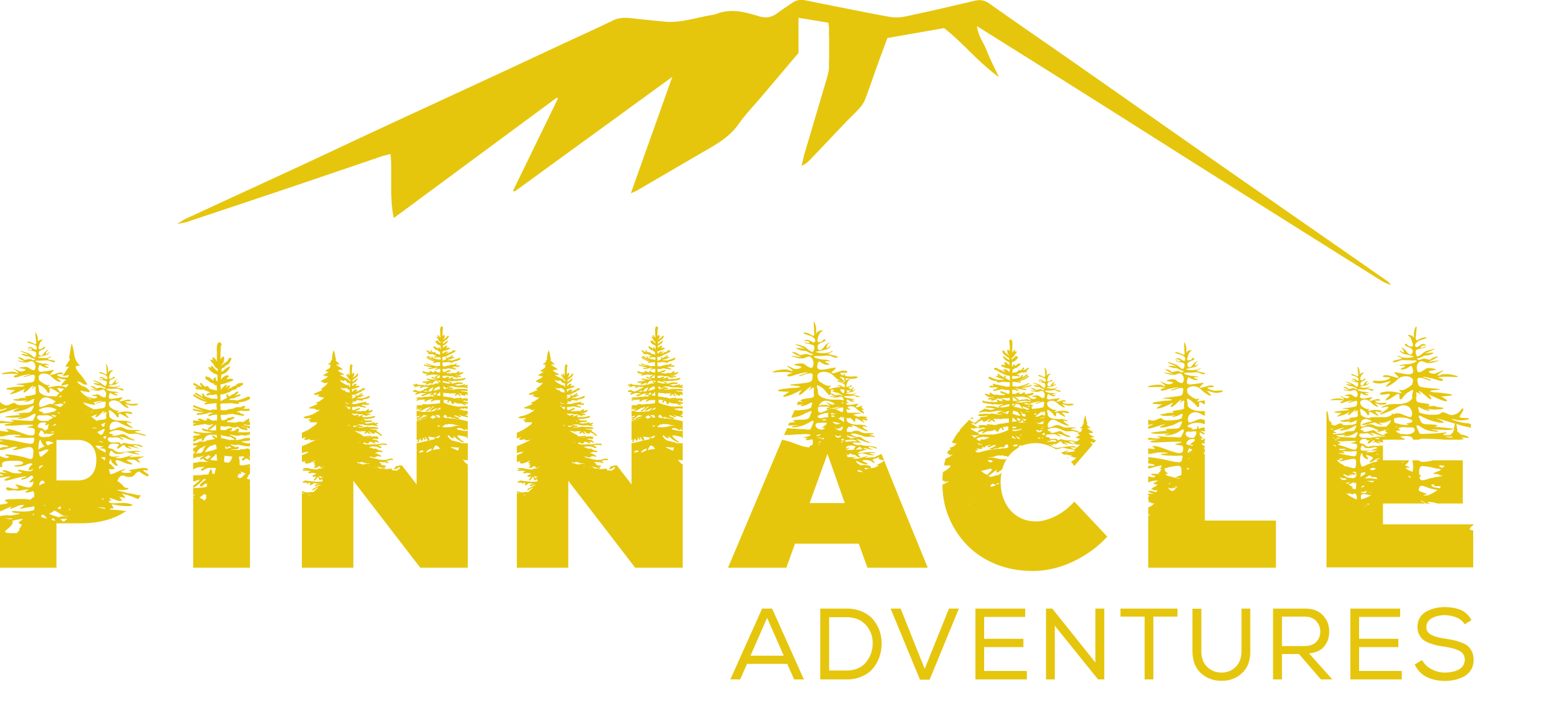7 Days Mount Kilimanjaro Trek via machame route
- Days 07 Private Tour Available
- From ₹ 126,750.00 Check Group Discount
- Free Cancellation
- Best Price Gurantee
About this activity
- Instant Booking
- Free Cancellation Free cancellation up to 29 day(s) prior departure, after which the tour cancellation policy applies Learn More.
- Duration:7 Day(s)
- Activities
- Camping and Stargazing
- Expedition
- LGBTQ
- Mountaineering
- Nature
- Photography
- Trekking and Hiking
- Travel StyleBudget
- Guiding Type: Live Guide/Instructor
- Guide Language
- English
- Tour Vibe Active
- Recommended For
- Couple
- Family/Kids
- For Art Lovers
- LGBTQ
- Senior
- Solo
- Women
- Youth
- Destination
Country:
Tanzania,
Africa,
- Uhuru Peak
- Pickup
Kilimanjaro International Airport
From: To:
12:00 AM 12:00 AM - Drop-off
Qwine Hotel in Moshi or Similar
From: To:
12:00 AM 12:00 AM - Age Range 12 - 100 (Years Old)
The Machame route, also known as the Whisky Route is one of the most scenic and recommended routes on Kilimanjaro. This popular route with paths through magnificent forests to gain a ridge leading through the moorland zones to the Shira Plateau. It then traverses beneath the glaciated precipices of the Southern Ice fields to join the Barafu Route to the summit. Because it can be done over longer periods and the incline is more manageable it has a much higher success rate of summit.
Duration: 6 or 7 days
Difficulty: Medium
Scenery: Excellent
Traffic: High
Kilimanjaro climbing Machame route 7 days, the whisky route as it is sometimes called is the most scenic, beautiful & challenging route. Affordable Kilimanjaro Trekking Machame Route 7 days is a bit harder as it demands more physic than its counterpart Marangu route, this route fits for courageous climbers. On request this package can be combined with short Tanzania safari or Zanzibar beach holidays. Our pole pole pace of one step at a time is a sure way of getting you to the summit. The location of this route is South-West of Kilimanjaro National Park hence offering a great chance of amazing photos of Shira plateau and the Barranco Wall, more than 25% of Kilimanjaro climbers pick this route. Tents accommodation is the only option in this route. Machame route can be done in not less than 6 days or more, when you have chosen 7 days Machame route tour, you will spend your night of the 4th day at the Karanga Camp. But in case of Machame route 6 days tour you will hike past Karanga Camp & spend your night of the day 4 at Barafu Camp.
ITINERARY
Elevation: 1811m/5942ft to 3021m/9911ft Altitude gained: 1210m Departing from Moshi a 45-minute drive will take you through the Village of Machame to the Kilimanjaro National Park Gate. We will patiently wait for our permits to be issued while watching the hustle and bustle of operations as many crews prepare for the journey ahead Enjoy the beautiful rainforest scenery and windy trails while your guide tells you about the local flora and fauna and natural wildlife. At these lower elevations, the trail can be muddy and quite slippery. We highly recommend gaiters and trekking poles here.
Elevation: 3021m/9911ft to 3839m/12,595ft Altitude gained: 818m After a good nights sleep and a hearty breakfast, we emerge from the rain forest and continue on an ascending path, crossing the valley along a steep rocky ridge. The route now turns west onto a river gorge until we arrive at the Shira campsite. Temperatures begin to drop.
Elevation: 3839m/12,595ft to 3986m/13,077ft Altitude gained: 147m Although you end the day around the same elevation as when you began, this day is very important for acclimatization. From Shira Plateau we continue east up a ridge, passing the junction towards the Kibo peak before we then continue, South East towards the Lava Tower, called the “Shark’s Tooth” (elev. 4650m/15,250ft). Shortly after the tower, we come to a second junction, which leads to the Arrow Glacier. We then continue to descend overnight at Barranco Camp.
Elevation: 3986m/13,077ft to 4034m/13,235ft Altitude gained: 48m After breakfast, we continue on a steep ridge up to the adventurous Barranco Wall to the Karanga Valley and the junction, which connects, with the Mweka Trail. This is one of the most impressive days to see the power, agility, and strength of your crew zip over this wall with what appears such ease. Overnight at Karanga Camp.
Elevation: 4034m/13,235ft to 4662m/15,295ft Altitude gained: 628m We continue up toward Barafu Camp, and once reached you have now completed the South Circuit, which offers a variety of breathtaking views of the summit from many different angles. An early dinner and rest as we prepare for summit night. Overnight at Barafu Camp.
Elevation: 4662m/15,295ft to 5895m/19,341ft Altitude gained: 1233m Descent to 3106m/10,190ft Altitude lost: 2789m Excitement is building as morning comes with an early start between midnight and 2 a.m. This is the most mentally and physically challenging portion of the trek. We continue our way to the summit between the Rebmann and Ratzel glaciers trying to stay warm and focused on the amazing sense of accomplishment that lies ahead. With a switchback motion in a northwesterly direction and ascend through heavy scree towards Stella Point on the crater rim. You will be rewarded with the most magnificent sunrise during your short rest here. Faster hikers may view the sunrise from the summit. From here on your remaining 1 hour ascent to Uhuru Peak, you are likely to encounter snow all the way. Congratulations, one step at a time you have now reached Uhuru Peak the highest point on Mount Kilimanjaro and the entire continent of Africa! After photos, celebrations and maybe a few tears of joy we take a few moments to enjoy this incredible accomplishment. We begin our steep descent down to Mweka Camp, stopping at Barafu for lunch and a very brief rest. We strongly recommend gaiters and trekking poles for uncooperative loose gravel and volcano ash terrain. Well-deserved rest awaits you to enjoy your last evening on the mountain. Overnight Mweka Camp.
Elevation: 3106m/10,190ft to 1633m/5358ft Altitude lost: 1473m After breakfast and a heartfelt ceremony of appreciation and team bonding with your crew, it’s time to say goodbye. We continue the descent down to the Mweka Park Gate to receive your summit certificates. As the weather is drastically warmer, the terrain is wet, muddy and steep and we highly recommend Gaiters and trekking poles. From the gate, a vehicle will meet you at Mweka village to drive you back to your hotel in Moshi (about 30 minutes). Enjoy a long overdue hot shower, dinner and celebrations!!
WHAT’S INCLUDED
| Location | Nights | Type | Property Name | Rating | Occupancy |
|---|---|---|---|---|---|
| Moshi | 2 | Hotel | Qwine Hotel or Similar | 3 Star | Private |
| Mount Kilimanjaro | 6 | Camping | Machame route | Unrated | Private |
Pick up from and to the airport are included
Professional and well experienced English speaking guide
- Halal
- Jain
- Kosher
- Meat
- Vegan
- Vegetarian
All Meals on the mountain are provided (3-4 Meals a day)
- Private Vehicle
-All Park Fees and taxes
-Return transfers Kilimanjaro airport to Moshi and Moshi to Kilimanjaro airport
-Hotel the night before and the night after the climb, with breakfast included
-Large portions of fresh, healthy, nutritious food all 3 meals a day
-All Kilimanjaro National Park gate fees, camping fees and climbing permits.
-Kilimanjaro National Park rescue fees (Kilimanjaro Rescue Team)
-Emergency oxygen (for use in emergencies only – not as summit aid)
-Basic first aid kit
-Qualified mountain guide, assistant guides, porters and cook + Their wages as per the standard set
-Camping equipment (tents, camp chairs, tables & sleeping mattresses)
-Fresh Water for drinking & Hot water for a wash daily
WHAT’S EXCLUDED
- Flights
- Insurance
- Extra Services
Other Excluded:
-Visas, Flights and airport taxes
-Items of a personal nature
-Gratuities
-Health requirements (Yellow Fever vaccination is compulsory if travelling to Tanzania)
-Highly recommended travel and medical insurance.
-Personal hiking/trekking gear (you may opt to rent the gears from equipment stores in Moshi)
-Optional but highly recommended Portable toilet
-Personal medicine and water purifying tablets
-Meals & drinks not specified and snacks
Covid Safety
-Face masks are required for travellers in public areas
-Face masks are required for guides in public areas
-Face masks provided for travellers
-Hand sanitiser available to travellers and staff
-Social distancing enforced throughout the experience
-Regularly sanitized high-traffic areas
-Gear/equipment sanitized between uses
-Transportation vehicles are regularly sanitized
-Guides required to regularly wash hands
-Regular temperature checks for staff
-Temperature checks for travellers upon arrival
-Paid stay-at-home policy for staff with symptoms
-Contactless payments for gratuities and add-ons
Availability
Tour Cancellation Policy
Free cancellation up to 29 day(s) prior departure, Or traveler will pay 20 % of the tour amount
Any cancellation of a reservation must be in writing, either by e-mail or fax, and shall only be effective upon its receipt and acknowledgement. The following cancellation fees will be made for cancellations: More than 29 days prior to trip commencement 20% of the tour price 15 to 10 days prior to trip commencement 30% of tour price No show to 5 days prior to trip commencement (or no show) 50% of the total tour price No refunds are given for the following: Lost travel time or substitution of facilities Itineraries amended after departure Presence of circumstances beyond the company's control which requires alternative arrangements be made to ensure the safety or further participation and enjoyment of your tour, Lack of your appearance for any accommodation, service, activity, or tour segment without prior notice (see above) Premature contract termination
Tour Date Change Policy
Tour Date can be changed 29 day(s) prior departure
Good To Know
Training
Most days climbing Kilimanjaro are no worse than an average day hiking at home. There are though a number of factors that make this a really tough challenge.
First, you will be hiking for at least 7 days continuously. This puts a big strain on all your muscles and joints.
Second, as you climb, the oxygen content in the airdrops rapidly. This means that with every breath you are getting less and less power. At the summit, each breath has about half the amount of oxygen that you would normally have.
Third, although most days are not overly difficult, summit night is extremely hard with an ascent of over 1500m, a descent of nearly 3000m and between 16-18 hours walking on average. TO be successful you need to be in the best physical condition of your life. We have detailed advice on training to climb Kilimanjaro. The key factors are cardio strength, muscle strength in the legs and flexibility. If at all possible try to get out and do some long days hiking at least twice in the weeks before your climb. And don't forget that the biggest difference between those who summit successfully and those who turn back is often just mental tenacity.
Staying well hydrated and eating plenty
Each day as you climb Kilimanjaro you will burn about 4000 calories. This is almost double your normal intake. On summit night you will burn well over 6000 calories. And as mountaineers say, you need to fuel the climb! So even if you have lost your appetite because of the effects of altitude you have to keep eating. Our menus are designed to be varied and really tasty but even if you don't feel hungry you must eat. Before you travel to Tanzania find a number of snacks that you really enjoy. Bring a good and varied supply. Even if you love Mars Bars you can find that when you are faced with your third in a night they are not quite so appetising.
And drinking plenty is even more important than eating. In the cold, dry air it is very easy to become dehydrated. Symptoms of dehydration are very similar to altitude sickness. It is not uncommon for someone to descend and then find that all they needed was lots of water. You will be given 2 litres of water daily. There will also be unlimited amounts of hot drinks at breakfast and dinner. You must ensure that you keep drinking. As a good guide, if your pee is yellow you are under-hydrated and need to drink more. Try to look after yourself in Kilimanjaro in such away.
Good equipment
Good equipment starts with your feet. Do not turn up for your climb in a shiny new pair of boots. Make sure your boots are well worn in and are comfortable. After your feet make sure you are looking after your head. On the lower slopes, you will need something that provides good sun protection. For summit night you need a really warm beanie or even balaclava. These can double up as a nightcap on really cold nights.
Finally, think about clothing layers. The daily temperature variation can be as much as 35c. The best way of coping with this is with layering rather than relying on one single jacket. Also, we strongly recommend gaiters and mittens. Kilimanjaro is very dusty and a boot full of dust is very uncomfortable. And we have not found a pair of gloves that are really warm enough for summit night so make sure to pack mittens or over-mittens.
Other critical items are a 4 season sleeping bag, trekking poles for the descent, a head torch for the night climb, a comfortable day pack and lots and lots of high factor sunscreen. We recommend the next packing list for climbing Kilimanjaro that you can review right now!
Careful acclimatisation
The single biggest reason why people fail at the summit is that they have not acclimatised well. We have lots of information on acclimatisation how to avoid altitude sickness but there are three key points to remember. The first is to go slowly. No matter how fit you are, if you go too quickly the risk of getting altitude sickness goes up. You will always hear our guides advising "Pole Pole", Swahili for slowly, slowly. As a good measure of your speed, if you cannot manage a conversation comfortably you are going fast.
The second is hydration, the really serious problems caused by altitude are due to changes in pressure. This happens badly in the lungs where fluid from your blood leaks into your lungs giving pneumonia-like symptoms. It also happens in your skull where fluid moves from your brain into the gap between the brain and the skull causing pressure headaches. If you are poorly hydrated you will increase the risk that this becomes a problem.
And third is to consider taking Diamox. This is a drug that is proven to help the body acclimatise to altitude faster. It is not a cure though and you can still get ill taking it. For most people though it is a safe way to reduce the risk of getting ill. You will need to see your doctor obtain a prescription for Diamox. He can assess you personally for suitability.
FAQs
What are the toilets like on Kilimanjaro?
The public toilets on Kilimanjaro are horrible. Fortunately, we now provide private toilets on Kilimanjaro as standard on all climbs. This is a chemical toilet in a small tent. This is kept clean and hygienic by our crew. Lots better than the long drop public loos.
How well do you treat your crew? are you a member of kpap?
We treat all our crew and guides really well. This is recognised by KPAP ( the Kilimanjaro Porters Assistance Program). You can see our most recent KPAP audit report.
KPAP do great work to ensure porters are treated fairly on the mountain. This is not just about wages, but food, clothing, tents and tipping policy. Sadly far too few Kilimanjaro operators are members of KPAP. We have been a leading member of KPAP since we started on Kilimanjaro. There is a KPAP porter on all our climbs to ensure that our treatment of porters always is up to high standards.
What is altitude sickness?
Altitude sickness (often just called AMS) is caused by climbing to altitudes where the air pressure is much reduced.
By the time you have reached the summit of Kilimanjaro air pressure is down to 49% of what it is at sea level. The first effect of this is that every lungful of air contains only half the amount of oxygen it would normally have. This makes any physical exertion very hard work. Slowly, slowly is the key.
The second and most dangerous effects of low pressures are on the parts of the body where fluid and air meet. The two most important areas in the skull and lungs. With low air pressure fluid gets into the lungs and the gap between the brain and the skull. In the lungs, this causes something like pneumonia, where your lungs fill with water. In the brain, it causes bad headaches. Both of these can become so bad they will kill you.
The good news is that we plan our ascents very carefully to minimise the risk of you getting AMS and have well-tested emergency plans on how to prevent altitude sickness.
What is the difference between an open group climb and a private climb?
Private climbs to climb Kilimanjaro are your own personal tailor-made adventure. They give you total flexibility and the highest chance of success. Just choose your date, route and any of our tailor-made options. Perfect for a group of friends or a charity group. Or perhaps for a couple looking to celebrate a special birthday or anniversary. Upgrades to private climbs start from £100 per person depending on the size of the group.
If you want the company of others while you climb Kilimanjaro then an open group is perfect for you. Our group climbs run every week during the main climbing season from June - October and December - March. They are limited to a maximum of 12 climbers to make sure you get the best chance of summit success. Particularly popular are our open group full moon climbs which run every month.
What will the food be like?
The food our cooks prepare on Kilimanjaro is amazing. What they can create on a mountain is beyond belief and everybody raves about our food. This is really important as keeping yourself hydrated and ensuring you eat well is one of the most important factors in success. You can read more about our Kilimanjaro food. If you have special dietary requirements or are a vegetarian then just let us know when you book so that we can be sure to have a suitable menu planned.
How will I wash during my climb?
Every morning and evening you will be provided with a bowl of hot water for washing. As well as this we strongly recommend a good supply of baby wipes for cleaning hands during the day. Also when it gets very cold higher on the mountain you can get by with what we call a "pits and bits" wash for which a baby wipe is perfect. Remember though that whatever you take up the mountain has to come down so you will need a waste bag to carry used wet wipes.
Are there any age restrictions on climbers?
Kilimanjaro Park Authority does not allow any climbers on the mountain younger than 12 years of age. There is no maximum - our oldest client who summited was 75. You should be aware though that we do not allow children younger than 16 to join an open group. This is primarily because we feel that for children under 16 we need to provide the more personalised care that is only available on a private trip. Also, we have sometimes had negative feedback from adults about having children on a climb with them.
Communicate with Pinnacle Adventures and Safaris Ltd.
- 1. Your enquiry is sent directly to the company.
- 2. They will reply to your own email, from where you can continue the conversation.


